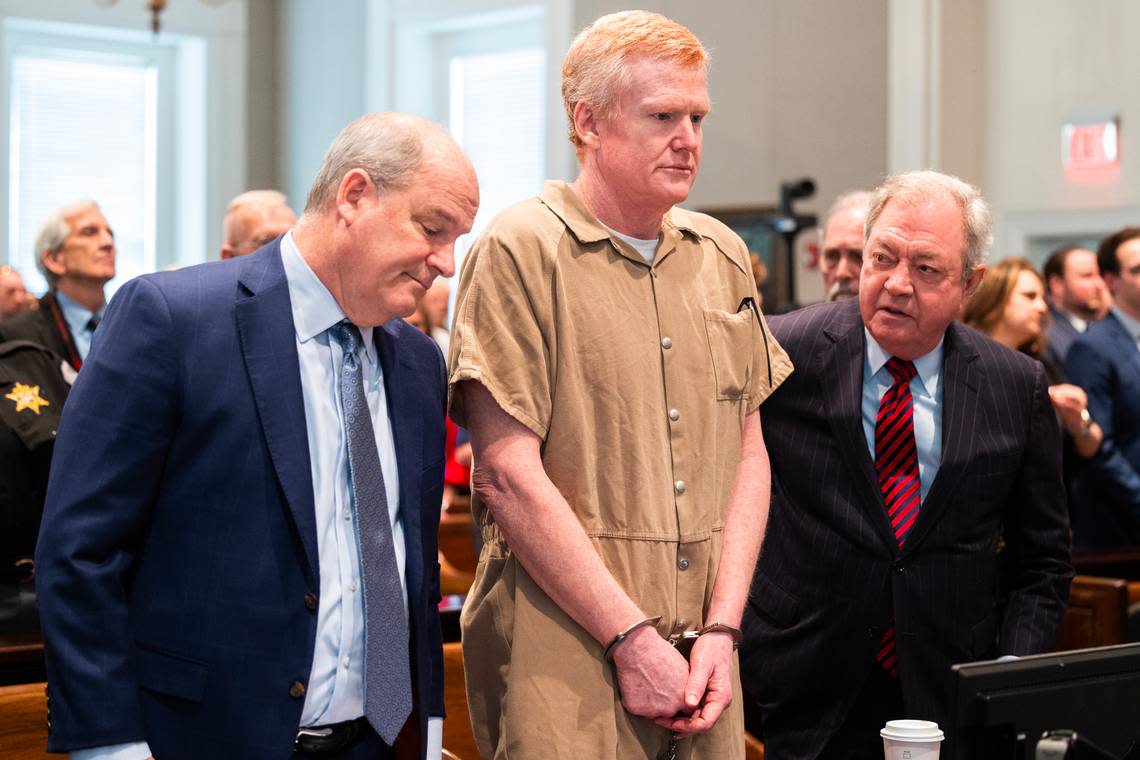Did quick Alex Murdaugh verdict allow true justice to be done? | Opinion
Justice done?
On March 2, former prominent attorney of South Carolina’s Lowlands Alex Murdaugh, inside a 200-year-old courthouse chamber stripped of the portraits of his dynastic forebears, was condemned to two consecutive life sentences for murdering wife Maggie and son Paul.
At sentencing, 6-foot-four Murdaugh, visibly contracted in spirit, resolutely reaffirmed his innocence.
Presumptive innocence rises as a chief pillar of our justice system, as does a person’s Miranda-buttressed right to remain silent. However, the Murdaugh trial cynically exposed just of what wind-blown gossamer material this foundation is made.
From so-called body-language experts to talk-show legal mavens to lay online opinion, the overwhelming sentiment was guilty. Are we to believe naively that a jury is somehow magically inoculated against this same preconception?
After providing jury instructions, the judge released the 12-member panel to deliberate. According to subsequent accounts, mostly from jurors touring morning talk shows, it took all of 45 minutes to arrive at a unanimous guilty verdict. It’s unconscionable to think that with more than a month’s worth of evidence and a man’s fate at stake, 12 individuals would neglect to rigorously examine each element of such a riddling case.
Yes, Murdaugh misrepresented his location at the time preceding the murders. Innocent people lie, just as innocent people confess.
Reminiscent of Camus’ Stranger, a man sentenced to death, not for his crime of murder, but for failing to cry at his mother’s burial, for Alex Murdaugh to have seemingly been judged on everything besides ambiguous, mishandled, and misrepresented evidence—namely, the authenticity of his tears—has justice truly been done?
Scott Hammond, Columbia
SNL misses mark
I understand from your newspaper that Saturday Night Live made jokes about the Murdaugh case. That is sad.
There is nothing comical about a man murdering his wife and child.
I have always believed that show was unnecessary. This more than convinces me that l am correct.
Susie Szasz, Lugoff
Simplify elections
A recently introduced bill (H.4022) would end unnecessary runoffs.
The bill creates an opportunity for municipalities to employ instant runoff voting (IRV) (also called “ranked choice voting”) in their local elections. Through the use of IRV, voters would no longer be forced to vote in two elections.
Rather than cast a vote for one candidate, voters in IRV elections are able to submit a list of candidates ranked in order of preference. (South Carolina voters stationed overseas already do this for primary elections.)
Once all ballots are cast, if there is no candidate with a majority of first place votes, the candidate with the fewest first place votes is eliminated.
For any ballot that placed the eliminated candidate as the first choice, the ballot would then count toward that ballot’s second choice. This process is continued until one candidate has garnered a majority of the ballots. The result is one election day with a built-in runoff.
A handful of states (both “red” and “blue”) have employed IRV and the process has been well received.
IRV would save taxpayer money and eliminate election volunteers having to work two separate election days.
C. Elliott, Columbia
Don’t allow racist comics
Stop carrying cartoons that promote racism and racial ill will.
Readers go to the comics section for light-hearted amusement. Stop subjecting them to negative views in strips such as Dilbert and Candorville.
These strips are not “woke” and do irritate readers looking for a little something to make them smile.
I am against censorship but believe the comics section can be better laid out for general readers.
Elizabeth Jones, Columbia








